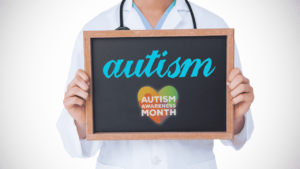When we think of older adults during COVID, images of older adults living in long-term care communities sheltering in place with hands pressed against windows trying to connect with loved ones circle in our heads.
2020 was a year of incredible hardship and pain for many people and especially for many older adults and their families. The Centers for Disease Control and Prevention (CDC) tells us that since the beginning of the COVID-19 pandemic, older adults have the greatest risk of requiring hospitalization or dying if they’re diagnosed with COVID-19. This has been one of the most heartbreaking fall outs of the pandemic.
(Images retrieved on 1/5/21 from: https://www.cdc.gov/coronavirus/2019-ncov/need-extra-precautions/older-adults.html)
We also know that many older families living with dementia or other significant illness during COVID-19 have been hit especially hard with closures of adult day programs and reduction of services. Not to mention, that when people with dementia become disoriented, the presence of family and friends, which is well-known to benefit people experiencing disorientation, is limited, and with masks blocking our facial expressions, it’s harder to reassure and soothe people who desperately need comfort and reorientation.
A message of hope
All of this is true, and yet, it is only part of the story when it comes to older adults and COVID. Research over the past year has shown that older adults have been, by and large, psychologically resilient during the pandemic.
In August 2020, the CDC published a survey of more than 5,000 adults. The older adults surveyed reported significantly lower percentages of anxiety disorder (6.2%), depressive disorder (5.8%), or trauma- or stress-related disorder (TSRD) (9.2%) than participants in younger age groups. For example:
- Among young adults aged 18 through 24, 49.1% reported anxiety disorder; 52.3%, depressive disorder; and 46%, TSRD.
- Among participants between 25-44 years old, 35.3% reported anxiety disorder; 32.5%, depressive disorder; and 36% for TSRD.
- Of participants aged 45-64 years old, 16.1% reported anxiety disorder; 14.4%, depressive disorder; and 17.2%, TSRD.
Older adults also reported lower rates of substance use and suicidal ideation in the preceding 30 days, compared to the younger age groups.
These findings are similar to other reports from other countries like Spain, Canada, and the Netherlands.
Here’s the bottom line…
Older adults tend to be really good at coping
At the beginning of the pandemic, as a society and health and mental health providers, our immediate concerns focused on how older adults would respond to COVID-19 and we were especially concerned about how loneliness and isolation would be exacerbated as lockdown measures were implemented. I focused on this as well with several articles and podcast episodes.
What we have seen, however, are high rates of resilience among older adults.
What is resilience?
Psychologists define resilience as the process of adapting well in the face of adversity, trauma, tragedy, threats, or significant sources of stress—such as family and relationship problems, life-altering health problems, disasters, COVID-19, etc (American Psychological Association)
To illustrate this point even further, in a recent New York Times article, Mark Brennan-Ing, a senior research scientist at Hunter College’s Brookdale Center for Healthy Aging described this phenomenon of older adults coping well with the COVID-19 pandemic as “crisis competence”.
“There’s crisis competence. As we get older, we get the sense that we’re going to be able to handle it, because we’ve been able to handle challenges in the past. You know you get past it. These things happen, but there’s an end to it, and there’s a life after that.” – Mark Brennan-Ing cited in The NY Times- reference below
How are older adults with depression doing during COVID-19?
Researchers from five academic institutions, (UCLA, University of Pittsburgh, Columbia University, Washington University in St. Louis and the Centre for Addiction and Mental Health/University of Toronto) recently found that the older adults, who were already enrolled in ongoing studies of treatment resistant depression, also exhibited resilience to the stress of physical distancing and isolation.
“We thought they would be more vulnerable to the stress of COVID because they are, by CDC definition, the most vulnerable population, but what we learned is that older adults with depression can be resilient. They told us that coping with chronic depression taught them to be resilient”. – Helen Lavretsky, MD, a professor-in-residence of psychiatry and behavioral sciences at the Jane and Terry Semel Institute for Neuroscience and Human Behavior at UCLA.
5 Proven Resilience Strategies Used by Older Adults During the COVID-19 Pandemic
1. Focus on the quality (not quantity) of relationships
Loneliness and isolation have been a primary concern related to older adults during COVID. Yet, researchers have found that for older adults experiencing isolation, having more close or meaningful relationships seems to be more protective than having more interactions with others.
2. Tap into wisdom & compassion
Researchers identify Wisdom as a complex personality trait that includes prosocial behaviors like empathy and compassion, emotional regulation, the ability to self-reflect, decisiveness while accepting uncertainty and diversity of perspectives, social advising, and spirituality.
Several recent studies have shown that the more wisdom we have, the less loneliness we experience. Scientists also found that component of wisdom that is correlated most strongly (and inversely) with loneliness is compassion, and suggest that enhancing compassion may reduce loneliness and promote greater well-being.
How does this relate specifically to older adults? Studies show higher levels of wisdom, especially the compassion component, in older than in younger adults.
Interested in deepening a practice of compassion and self-compassion? Check out Kristen Neff’s work at self-compassion.org.
3. Maintain regular schedules including hobbies, chores, work or exercise.
Maintaining a routine offers many benefits: It helps to provide a sense of security and predictability, it helps to reduce stress and anxiety, and has the added benefit of helping you sleep better at night. Learn more about keeping a routine, and engaging in hobbies and exercise programs tailored just for older adults, by downloading the COVID-19 Wellness Guide for Older Adults.
4. Mindfulness to focus on immediate surroundings and needs without thinking beyond the present.
Meditation and mindfulness have been shown to help slow memory loss and the development of dementia-related diseases, help people to cope better with anxiety and stress, and help to reduce loneliness.
5. Access to mental health care and support.
Accessing mental health care and support groups when you need them are essential to wellness and resilience.
For many people, using their own resources and the strategies listed above may be enough for building their resilience. But at times, an individual might get stuck or need a little extra guidance. And, as we saw with the resilient older adults living with depression, they were already enrolled in some sort of treatment and employed strategies for coping learned in the context of therapy.
Remember you’re not alone on this journey. Older adults have shown us that during difficult times, we can continue to persevere with the support of loved ones, mindfulness and self-compassion, routine, healthy hobbies, and trusted professionals.
References:
- https://www.sciencedirect.com/science/article/pii/S1064748120302955?via%3Dihub
- https://www.cdc.gov/coronavirus/2019-ncov/need-extra-precautions/older-adults.html
- https://www.uclahealth.org/older-adults-with-existing-depression-show-resilience-during-the-pandemic
- https://www.nytimes.com/2021/01/01/nyregion/85-and-up-oldest-old-ruth-willig.html
- https://www.apa.org/topics/resilience
- https://jamanetwork.com/journals/jama/fullarticle/2773479
- https://www.cdc.gov/mmwr/volumes/69/wr/mm6932a1.htm





